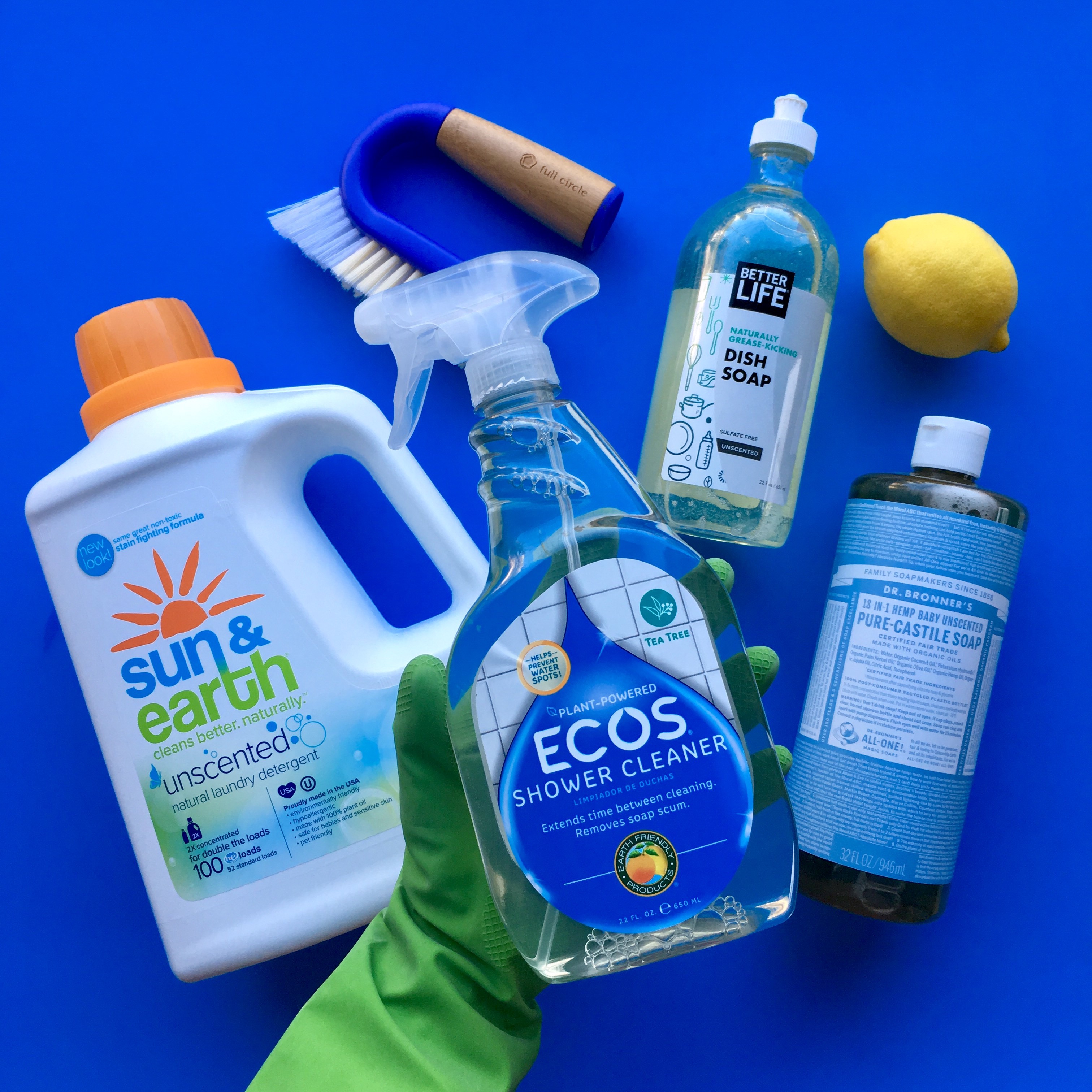When food shopping, you know to check labels and buy from trusted brands. But when it comes to household cleaners, it’s not always so easy. Cleaning product manufacturers do not have to disclose their full list of ingredients on the labels, so we have very little information with which to make informed decisions. Common cleaners may contain carcinogens, and can cause chemical burns, poisoning, allergic reactions, and even birth defects. Beyond our personal health, we know that cleaning products can be extremely detrimental to the environment, whether it be through polluting our watersheds or contributing to the formation of ozone.

So, how do we know what brands we can trust? At Kimberton Whole Foods, we often turn to The Environmental Working Group (EWG), a non-profit organization that has created an in-depth rating system that seeks to identify which household cleaning products are safest. When shopping, here are some labels and terms to look out for:
AVOID
Volatile organic compounds (VOCs) – These are air contaminants that form smog and can lead to severe health effects.
Antibacterial Active Ingredients (Pesticides) – Hazardous chemicals added to kill bacteria, viruses, or molds. Plain soap and water cleans dishes and hands just as well, without the nasty runoff.
DON’T BE FOOLED
Biodegradable – This means that ingredients break down once they reach rivers, streams, or landfills. This term is not regulated on cleaning product labels, and some ingredients break down and actually become more harmful, like nonylphenol ethoxylates.
Natural, Plant-Based, Non-toxic – These terms are not regulated in the cleaning products industry.
Organic – There are no legal constraints on the term organic when it comes to cleaning supplies. Unless you see the USDA Organic logo, the term may be entirely meaningless. (For instance, it could mean that the ingredients are made mostly of carbon atoms, which would actually include petroleum-based ingredients.)
LABELS TO LOOK FOR
Safer Choice – This is a program overseen by the U.S. Environmental Protection Agency that works with manufacturers to make safer products. Not all Safer Choice approved products are approved by the EWG.
Green Seal and EcoLogo – These organizations provide independent, third party certification of environmentally friendly cleaners. According to the EWG, “their standards are the best out there today.”
Leaping Bunny – If your goal is to do no harm with your cleaning products, look for labels like the Leaping Bunny to ensure that the products were not tested on animals.
Be sure to view our Safe Spring Cleaning Guide for tips and tricks for a spotless home!





